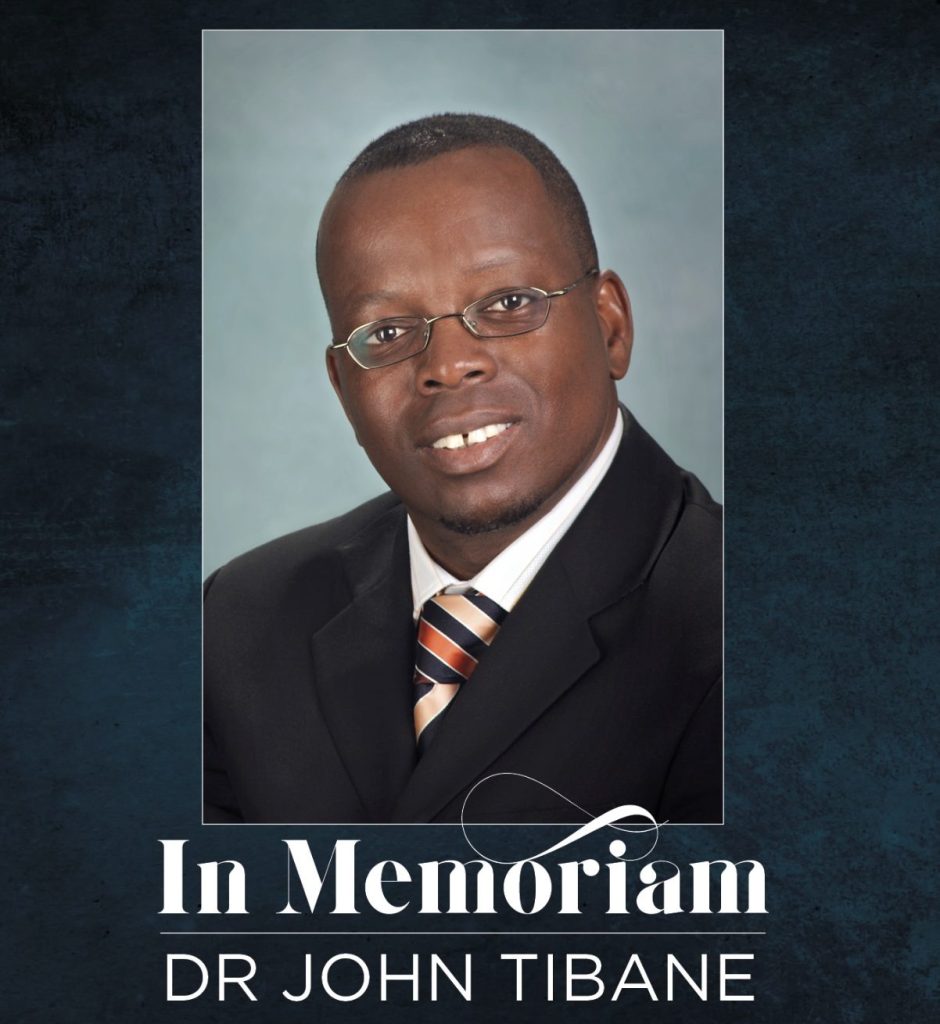SOUTH AFRICA: A man in arrears with his Standard Bank Bond lost a house worth an R4million.
A man in arrears with his Standard Bank Bond lost a house worth R4million. It was auctioned for R360k! 😞
court dismissed his application to set aside the sale.— Jade (@Jade_Louella) October 13, 2022
It was auctioned for R360k! 😞.the court dismissed his application to set aside the sale. It was dismissed with costs.

IN THE HIGH COURT OF SOUTH AFRICA
(GAUTENG DIVISION, JOHANNESBURG)
Case no: 2018/47106
In the matter between:
DAYALAN MUNSAMI Applicant
and
THE STANDARD BANK OF SOUTH AFRICA LTD First Respondent
SHERIFF RANDBURG SOUTH WEST Second Respondent
REGISTRAR OF DEEDS JOHANNESBURG Third Respondent
HAZEL IRENE KNOWLER Fourth Respondent
_______________________________________________________________
JUDGMENT
_______________________________________________________________
This judgment was handed down electronically by circulation to the parties’
legal representatives by e-mail and by uploading the signed and stamped
copy hereof to Caselines. The date and time for hand-down is deemed to
be 10h00 on 10 October 2022.
(1) REPORTABLE: NO
(2) OF INTEREST TO OTHER JUDGES: NO
(3) REVISED.
Signature: ……………………. Date: 10 October 2022
MOULTRIE AJ
Introduction
[1] The applicant seeks an order setting aside the sale in execution and
transfer to the fourth respondent of his primary residence (“the property”)
pursuant to a judgment obtained by the first respondent (“the Bank”). The
basis for this relief is alleged non-compliance by the Bank with the
provisions of Rule 46A prior to the sale and transfer.
Relevant Facts
[2] It is common cause that the judgment debt arises from an order of
summary judgment granted by his Lordship Mr Acting Justice Mtati on 9
May 2019. Apart from various orders requiring the payment of moneys due
and owing to the Bank, the summary judgment declared the property
specially executable and authorised the Registrar to issue a writ of
execution without setting a reserve price (“the Rule 46A orders”).
[3] The Rule 46A orders formed part of the relief claimed by the Bank in the
combined summons that it had issued on 20 December 2018.
[4] The Bank’s particulars of claim included inter alia the following allegations:
(a) Under the hearing “Executability Order”, the Bank alleged that the
the property was the applicant’s primary residence, and he was directed to
take notice of the provisions of sections 26(1) and (3) of the Constitution,
as well as the requirements of Rule 46A. He was “called upon to place
facts and submissions before the court” to enable the court to apply
Rule 46A, failing which an order declaring his home specially
executable may be granted and “consequent upon which [his] home
may be sold in execution”.
(b) Under the heading “Relevant Factors”, the Bank set out the amount of
the monthly instalments, the amount of the instalments in arrears, the
number of months that the applicant was in arrears, the date of the last
3
payment of the received from the applicant, and the full amount owing
to the Bank and secured by the property as at the date of summons.
These allegations were supported by a statement of account.
(c) The Bank made the allegation that it was unlikely that the applicant
would be in a position to pay his indebtedness within a reasonable time
and that there was no alternative or less invasive means available to
satisfy the anticipated judgment debt.
(d) Under the heading “Reserve Price and general”, the Bank stated that
an automated valuation report was attached in order to assist the court
in setting a reserve price should it decide to do so. The valuation report
calculated the “high value” of the property as being R4.94 million,
whereas the “low value” was calculated as being R3.38 million. The
Bank further alleged that it had been unable to obtain a sworn valuation,
as the applicant was not co-operating with it to obtain such a valuation
or any other information relevant to the property and that the Bank “has
no knowledge of any other factors for the purposes relevant” to the
setting of a reserve price.
[5] Following delivery of a notice of intention to defend by an attorney acting
on behalf the applicant, the Bank applied for summary judgment in March
2019. It should be noted that this was prior to the amendments to Rule 32
which require a plaintiff to wait until the delivery of a plea before making
such an application. The Rule 46A relief was included among the prayers
in the notice of application for summary judgment. In the affidavit filed in
support of the summary judgment application, the relevant official of the
Bank swore positively “to the facts verifying the cause of action”.
[6] Despite the applicant being legally represented at the time of the summary
judgment application and order (he specifically alleges in the founding
affidavit that “at the time I had legal representation”), he did not deliver any
answering affidavit setting out a defence or placing facts and submissions
before the court in relation to the factors to be considered for the purposes
4
of Rule 46A.
[7] The applicant did not apply for a rescission of the summary judgment
(including the Rule 46A orders) or seek to suggest that the consequent
sale in execution without a reserve price would be impeachable for any
non-compliance with Rule 46A. To the contrary, the applicant launched
urgent proceedings in December 2020 seeking to stay the sale in
execution (not but not prevent it altogether) on the basis that the notice of
sale did not contain a short description of the property. Further concerns
about the adequacy of the short description were raised in correspondence
on 14 April 2021 but, once again, no allegation was made that the
anticipated sale in execution would be impeachable on the basis of any
non-compliance with Rule 46A.
[8] The property was sold in execution to the fourth respondent for the sum of
R360,000.00 at a public auction on 24 June 2021, which the applicant
notes was far below the “low value” calculated in the automated valuation
report. The transfer was registered on 25 November 2021.
[9] On about 16 February 2022, the fourth respondent launched an
application seeking the eviction of the applicant from the property. The
current application was launched about a week later, on 24 February 2022.
Discussion
[10] In his affidavits, the applicant was at pains to emphasise that this is not a
rescission application, and this contention was repeated at the hearing
before me by Mr Panday, who represented him. It was argued that
although the summary judgment issued by Mtati AJ (including the Rule
46A orders which did not set a reserve price) is not impugned, the
applicant is entitled to the relief that he seeks purely on the basis of the
alleged non-compliance with Rule 46A together with the prejudice that he
has allegedly suffered as a result of the fact that the property was sold
without any reserve price.
5
[11] According to applicant, the alleged non-compliance with Rule 46A was not
a failing of the court, but of the Bank, which he contends was obliged to
bring a separate Rule 46A application after the summary judgment
(including the Rule 46A orders) was granted.
[12] I disagree, for two reasons.
[13] In the first place, as a general principle of our law, a sale in execution and
consequent registration of transfer of immovable property may only be
impugned in exceptional circumstances1 and, in particular, in
circumstances where the purchaser took transfer of the property in bad
faith with knowledge of the alleged defect in the sale.2
[14] The applicant makes no allegation, let alone adduces any evidence that
would lead me to conclude that the fourth respondent took transfer of the
property in bad faith, or with any knowledge of the non-compliance with
Rule 46A alleged by the applicant in the current instance. Indeed, nothing
in the affidavits serving before me indicates that any non-compliance with
the rule was alleged by the applicant until after the date of transfer.
[15] Secondly, and even assuming that a failure to comply with Rule 46A could,
without more, constitute exceptional circumstances justifying the
impeachment of the sale and transfer, I do not consider that there was any
non-compliance with Rule 46A. In particular, it was not necessary for the
Bank to have launched a separate application in which the provisions of
Rule 46A would, in the words of Mr Panday, be the “sole focus”.
[16] There is precedent in this division to the effect that, as long as appropriate
steps are taken “by the lawyers drafting the pleadings in the matter
effectively to marry the summary judgment procedure with that of rule 46”,3
1 Sookdeyi and Others v Sahadeo and Others 1952 (4) SA 568 (A) at 571H – 572A.
2 Polizzi and Another v Standard Bank of South Africa Limited and Others (12598/2009) [2017]
ZAWCHC 73 (30 May 2017) at para 36.
3 Standard Bank of South Africa Ltd v Lamont 2022 (3) SA 537 (GJ) paras 3 to 10.
6
nothing in principle prevents a party seeking and obtaining orders in terms
of Rule 46A in the course of a summary judgment application. As long as
the relevant allegations are made in the particulars of claim and verified
on oath in the summary judgment affidavit4 or in another affidavit,5 there
is no need for a separate Rule 46A application.
6
[17] In my view, the two procedures were indeed effectively “married” in the
current instance, and the provisions of Rule 46A were substantially
complied with when the summary judgment (including the Rule 46A
orders) was sought and granted. When I invited Mr Panday to identify any
specific provision of Rule 46A that had not been complied with in the
course of the summary judgment application, he conceded that he was
unable to do so. I consider this concession was well-made for the following
reasons:
(a) The summary judgment was an instance in which an execution creditor
sought to execute the residential immovable property of a judgment
debtor (Rule 46A(1)).
(b) The allegations in support of the Rule 46A orders contained in the
particulars of claim constituted part of the “cause of action” that was
verified on oath by the Bank’s official in the affidavit in support of the
application for summary judgment.
(c) The court was specifically advised that the immovable property which
4 This was also the approach taken in ABSA Bank Limited v Sawyer [2018] ZAGPJHC 662 (14
December 2018). Although there is no reference in the current matter to an affidavit akin to
one filed in compliance with paragraph 10.17 of the erstwhile practice manual, I can find
nothing in either the Sawyer judgment indicating that Rule 46A would have been found not to
have been complied with in the absence of such an affidavit.
5 In Nedbank Limited v Pettitt and Another (24418/2019) [2021] ZAGPJHC 74 (4 June 2021),
summary judgment was refused in circumstances where the plaintiff neither included relevant
allegations in the particulars of claim nor filed an additional affidavit.
6 This is not to say that it would always be inappropriate to deliver a separate Rule 46A
application: In Changing Tides 17 (Pty) Limited NO v Rademeyer and others [2019] ZAGPPHC
165 (13 May 2019), the court granted summary judgment in circumstances where the plaintiff
had delivered a separate Rule 46A application, which was considered simultaneously with the
summary judgment application.
7
the Bank intended to execute against was the primary residence of the
Applicant (Rule 46A(2)(a)(i)) and it was alleged that there were no
alternative means to satisfy the judgment debt, other than execution
against the property (Rule 46A(2)(a)(ii)).
(d) There is no evidence to suggest that when Mtati AJ made the Rule 46A
orders, he did not consider that the Rule 46A orders were warranted, or
that he failed to consider the information placed before him in relation
to the special executability of the property set out in the particulars of
claim and verified on oath in the summary judgment affidavit (Rule
46A(2)(b)).
(e) It is conceded that the court granted the Rule 36A orders and given that
they are not impugned, there is no basis to contend that Rule 46A(2)(c)
was not complied with.
(f) The notice of application for summary judgment contained prayers for
the Rule 46A orders, and as such constituted “a notice of application to
declare residential immovable property executable” as contemplated in
Rule 46(3) and was substantially in accordance with Form 2A of
Schedule 1 (Rule 46(3)(a)).
(g) The application for summary judgment was on notice to the applicant,
and was supported by the affidavit in support of summary judgment
which set out the reasons for the application and the grounds on which
it was based by reference to the contents of the Particulars of Claim
(Rule 46(3)(b) and (c)).
(h) Although the application was not served by the sheriff on the applicant
personally, I consider that the service on the applicant’s attorney of
record in circumstances where he expressly alleges that he was legally
represented in relation to the matter at the time constituted acceptable
alternative service as contemplated in the proviso to Rule 46A(3)(d).
(i) While the notice of application for summary judgment did not state the
8
specific date on which the application was to be heard; expressly inform
the applicant that if he intended to oppose the application or make
submissions to the court, he must do so on affidavit within 10 days of
service of the application and appear in court on the date on which the
application is to be heard (Rules 46(4)(a)(i) and (ii)), these requirements
(as well as the requirement in Rule 46A(4)(b)) were substantially
complied with in view of the provisions of Rule 32(2) and (3)(b) as they
existed at the time, or are of no moment in view of the fact that the
applicant was legally represented in the matter at the time. I note in this
regard that although the court in Lamont considered that these
requirements had not been complied with, that did not result in the
dismissal of the application, but only Keightley J affording the
respondent an opportunity to file an affidavit providing the information
that he was entitled to provide to the court under subrule 46A(6)(a).
7
(j) The notice of application for summary judgment appointed a physical
address within 15 kilometres of the office of the registrar at which the
Bank would accept service of all documents in the proceedings and
gave the Bank’s attorneys’ postal and electronic mail addresses (Rule
46A(4)(a)(iii) and (iv)).
(k) The application for summary judgment was supported (by reference to
the contents and annexures to the particulars of claim in the affidavit in
support of summary judgment) by documents evidencing the
information required by Rule 46A(5).
(l) There is no evidence to suggest that when Mtati AJ made the Rule 46A
orders, he did not as required by Rule 46A(9) consider whether a
reserve price was to be set.
7 Standard Bank v Lamont (above) at para 9.
9
Conclusion, costs and order
[18] In the circumstances, the application falls to be dismissed.
[19] The usual principle is that the successful party should be awarded its
costs. I see no reason to depart from that approach in this matter.
[20] The application is dismissed with costs.
_______________________
RJ Moultrie AJ
Acting Judge of the High Court
Gauteng Division, Johannesburg
DATE HEARD: 5 October 022
JUDGMENT DELIVERED: 10 October 2022
APPEARANCES
For the Applicant: Attorney S Panday, instructed by Kesi Moodley
attorneys
For the 1st Respondent: Attorney S Jacobs, instructed by Stupel Berman Inc.
For the 4th Respondent: Adv L Mhlanga, instructed by: Precious Muleya Inc.




